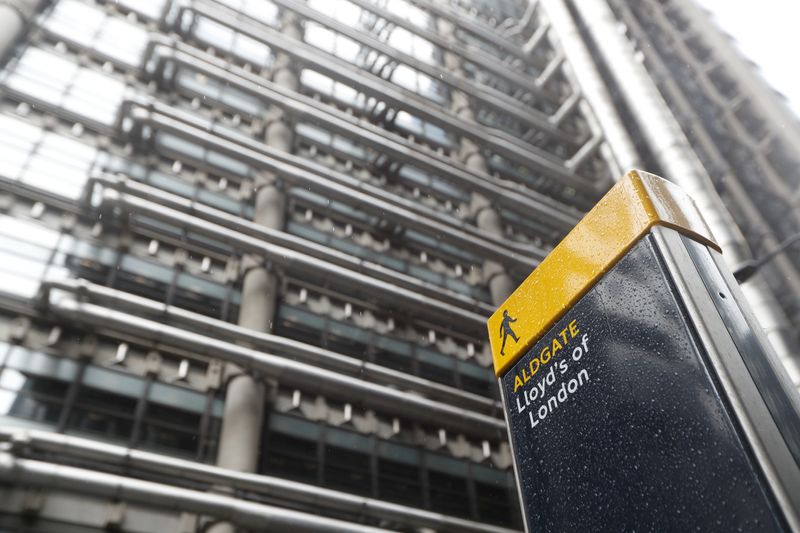By Guy Faulconbridge
LONDON (Reuters) - British financial institutions that benefited from slavery such as Lloyd's of London should go further than saying sorry for their role in the Atlantic slave trade and atone for their sins by funding Caribbean development, the region's countries said.
More than 10 million Africans were shackled into the Atlantic slave trade by European nations between the 15th and 19th centuries. Those who survived the often brutal voyage, ended up toiling on plantations in the Americas.
While the history of Europe's scramble for African slaves has been widely known for centuries, the death of George Floyd in the United States has prompted a sweeping global reassessment of racism and the financing of the slave trade.
The Lloyd's of London insurance market apologised on Thursday for its "shameful" role in the 18th Century Atlantic slave trade and pledged to fund opportunities for black and ethnic minority people.
But a regional alliance of Caribbean countries said that Britain's institutions should go much further than simply apologising and give some of the wealth back to the Caribbean by funding development at the epicentre of the slave trade.
"It is not enough to say sorry," said Hilary Beckles, chairman of the CARICOM Reparations Commission which was set up by Caribbean countries to seek reparations from former colonial powers such as the United Kingdom, France and Portugal.
"We are not asking for anything as mendicant as handing out cheques to people on street corners," Beckles told Reuters from Jamaica. "The issue of money is secondary, but in this instance the moral discharge of one's duty does require in a market economy that you contribute towards development."
There was no immediate reply from Lloyd's of London to a request for comment.
NEGOTIATED SETTLEMENT
Beckles, a Barbadian historian, said the antecedents of many British and European banks, as well as an array of accompanying institutions in the City of London, "drank from the well of Caribbean slavery".
The Bank of England apologised for what it called the "inexcusable connections" of some past governors and directors to slavery, and said it would remove any portraits of them from display anywhere on its premises.
The history of several other British financial firms, including Barclays (L:BARC), is also under fresh scrutiny.
"Unfortunately, one cannot go back and remake the history but you can make atonement: it is not enough to make your apology as a public spectacle, it is not enough to present it as public relations exercise," said Beckles.
"It is not about public relations - it is about a negotiated settlement whereby everyone finds closure within a moral framework," he said. "To say sorry and issue a press release is disrespectful - it does not fly with the people who were victimized."
British institutions, he said, should sit down with Caribbean nations to fund development projects - or even consider a sort of "Marshall Plan" to give some of the plundered wealth back - a reference to the U.S. aid given to Europe after the destruction of World War Two.
"The British legacy of slavery and colonalisation has left the black community in quite a mess," Beckles said, adding that he was not calling for litigation of any kind.
"All the institutions that created this mess really have to come and help in practical ways to clean it up."
On Britain's broader reassessment of its past, Beckles said public consciousness was catching up with history.

"Public consciousness is catching up with history: that moment has come. British public morality has caught up with its own institutional history of slavery."